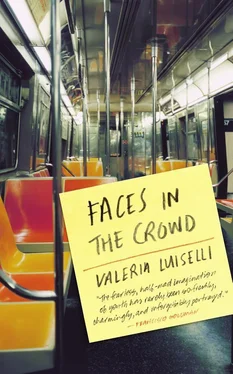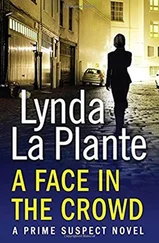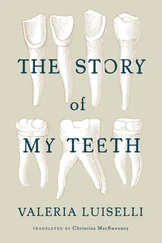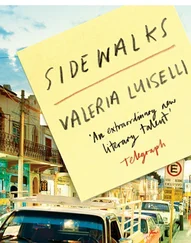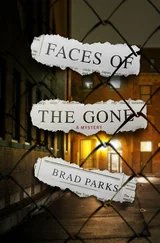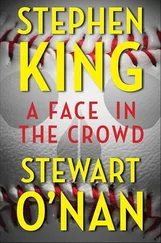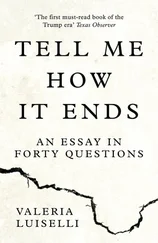My Beloved is the mountains,
The solitary wooded valleys,
The strange isles,
The sonorous rivers,
The whistling of amorous gales;
Do you prefer “sonorous rivers” or “roaring torrents”? he asked.
Neither.
How about the valleys: “wooded valleys” or “bosky valleys”?
Bosky rhymes with Zvorsky and whisky. Well, maybe not whisky. And what are “amorous gales”? I think that’s meaningless, White.
Breezes. Gales should be breezes.
The tranquil night
At the approaches of the dawn,
The silent music,
The murmuring solitude,
The supper that revives, and enkindles love.
“Enkindles love” is really shitty, White.
“Rekindles.” It’s “rekindles.”Yeah, that’s good.
Every so often, we left our drinks on the bar and went outside to smoke. White’s enthusiasm was contagious. Perhaps mine could be too. So, during one of those pauses, I tried telling him a lie:
Did you know Gilberto Owen used to come to this very bar?
No, I don’t think so. This place opened in the thirties or forties and according to your report Owen was in New York earlier than that.
All right, he didn’t come here, but did you know he was a friend of Federico García Lorca?
St. John, let’s stick to St. John. How would you translate that beautiful bit of alliteration: “Un no sé qué que quedan balbuciendo”?
Not sure: “A nonsensical I know not what”? “A something I know not what”?
Someone must have spiked my drink while we were outside smoking. When we returned to the bar, I knocked back my whisky and suddenly could hardly understand a word White was saying. I looked on in silence as he talked about William Carlos Williams, Zvorsky, and Pound. He quoted lines from memory and laughed uncontrollably. I laughed with him, unsure what it was all about. A blue halo began to pulsate around his head. I reached out my hand, trying to touch it.
What’s wrong with you? he asked.
The halo! You’re St. John, White.
I’m going to take a leak, then we’re off, he said.
The waiter behind the bar seemed very tall, stretched out. He had long teeth, a devilish smile. People were laughing. White was taking ages. I closed my eyes for a moment. When I opened them, I saw William Carlos Williams beside me, wearing enormous glasses, inspecting the vagina of a miniature woman lying on a napkin on the bar; there was the poet Zvorsky sitting at a table, conducting an imaginary orchestra; Ezra Pound hanging in a cage at the corner of the counter and García Lorca tossing him peanuts, which he accepted gleefully. Let’s go, I heard White say behind me. I insisted it was my call, but my wallet had been stolen. He paid and we started for the door. Before going out, I saw Owen, looking terribly sad, eating peanut debris underneath Ezra Pound’s cage.
It was a long way to the hospital, the solitary bosky valleys. I looked at my thighs clad in the gray tights, trying not to lose my sense of reality. We walked along the frosty, bosky, Zvorsky sidewalk. All the while, White rattled on about the tree outside his house. He wanted to cut it down. My legs were the color of sidewalks in winter: they were like an extension of the sidewalk. I told White about the tree in the plant pot I’d stolen from Owen’s roof. I looked at my legs to avoid seeing anything else. I was a gray woman, a sidewalk-woman. St. John, St. Owen, let’s stick to St. John. The tights, the sidewalk: my Beloved is the mountains. I didn’t know any prayers, but reciting St. John’s lines in my head kept me close to something, some tangible center, while White’s careworn face transmuted into umpteen possible faces, each with its unsettling blue halo.
Will they put me in jail if someone sees me cutting down the tree? White was asking.
I think so, White.
The sonorous rivers: sidewalks, steps, and frost. The whistling of amorous breezes; the rhythm of my footsteps in the snow. In the logic of the sick person, of the idiot, the mad, everything is about to fall into place.
Would you help me cut it down?
What?
The tree.
But nothing ever falls into place. At the hospital, they thought I’d taken the drugs of my own free will. To calm me down, they gave me Valium: the tranquil night. Perhaps I died again, like I died that day on Owen’s roof. I slept: at the approaches of the dawn. I don’t know if it was hours or minutes: the silent music, the murmuring solitude. When I woke up I asked White for his cell phone and rang my sister to tell her what had happened. She explained: You had a panic attack. I said: No, I was drugged and robbed, and a no sé qué que quedan balbuciendo.
White stayed at my bedside until I stabilized. Around midday, we left the hospital and he walked me to the door of my building. Still a little dopey from the Valium and very grateful to White, I promised to help him fell the tree. He promised to read the notes I’d made about Owen more carefully. Just do me a bit more research so we can write a biographical sketch, he said, giving me a hug. He also told me I could keep the chair, which, anyhow, no one used. I entered the building, greeted the doorman, went up to my apartment, and brushed my teeth. Or perhaps I didn’t brush my teeth.
*
We’ve all come down with a virus. The first to get it was the boy. Then the baby. Now my husband and I, but worse. The boy says we’ve got a virus each, so altogether, that’s four viri.
*
In that country people complained and filed reports. They called the police. Dakota came to see me a few days after the incident in the bar. She asked:
Have you reported it?
No. What for?
She made the call, dramatizing the events, putting on a foreign accent. Last night some men drugged and robbed me, she said. They used my credit card and cleaned out my account. Dakota was very good when she was dramatizing. A few hours later, two uniformed cops turned up at my apartment. They took coffee in the dining room and notes in a notebook. The detective will call you in a few days, they said before going. I liked the idea of a detective calling me one day. The younger of the two handed me a piece of paper with his full name, phone number, and a heart with a smiley face in the center. I propped it up on the branches of the tree, next to my writing desk. Dakota and I got a little tipsy and watched a Jim Jarmusch movie.
*
My husband likes Stanley Kubrick and zombie movies, all zombie movies. The four of us have been in bed with a bug, alternating Kubrick and zombie movies. I can’t understand how he can like the two things at the same time. I confront him: It’s as if you like men and women at the same time. The boy contributes: It’s as if you liked Corn Pops with milk.
*
The detective rang my house a few days later. It was Sunday. Detective Matias speaking, he said. The following day, I went to see him in his office in a federal building opposite St. Mary’s Primary School. In the reception area, some wooden chairs and a cork board with that week’s notices: photos of missing people, emergency numbers, lists of possible offences, a typed announcement about a Catholic priest who’d been beaten about the head with a baseball bat wielded by the members of a gang. Again and again: facial and cranial injuries.
The waiting room smelled of piss. A secretary directed me to a room in which, presumably, interrogations were carried out. A squat little man with an Andean face and a Bronx accent came in. He was the caricature of a detective: hat, raincoat, and a toothpick. Detective Matias said:
Cup of coffee?
*
I don’t like zombie films. Why did you write that I like zombie films?
Because.
Please, cut the zombies.
*
One night, when we had to finish reading some manuscripts, White invited me to have pizza at his place. We worked late and, around four in the morning, White fell asleep with his head resting on the table. I catnapped in an armchair until dawn, reading a book called That, by Joshua Zvorsky, which I had found on the top of one of the many towers of books White had piled around the house. I listened to the sound of his placid snoring across the table. White had an affinity for Zvorsky. And there I was, sitting at the break of day, reading his poetry. I didn’t understand much, but it occurred to me that this could be my means of convincing White about the importance of Gilberto Owen. That’s the way literary recognition works, at least to a certain degree. It’s all a matter of rumor, a rumor that multiplies like a virus until it becomes a collective affinity.
Читать дальше
